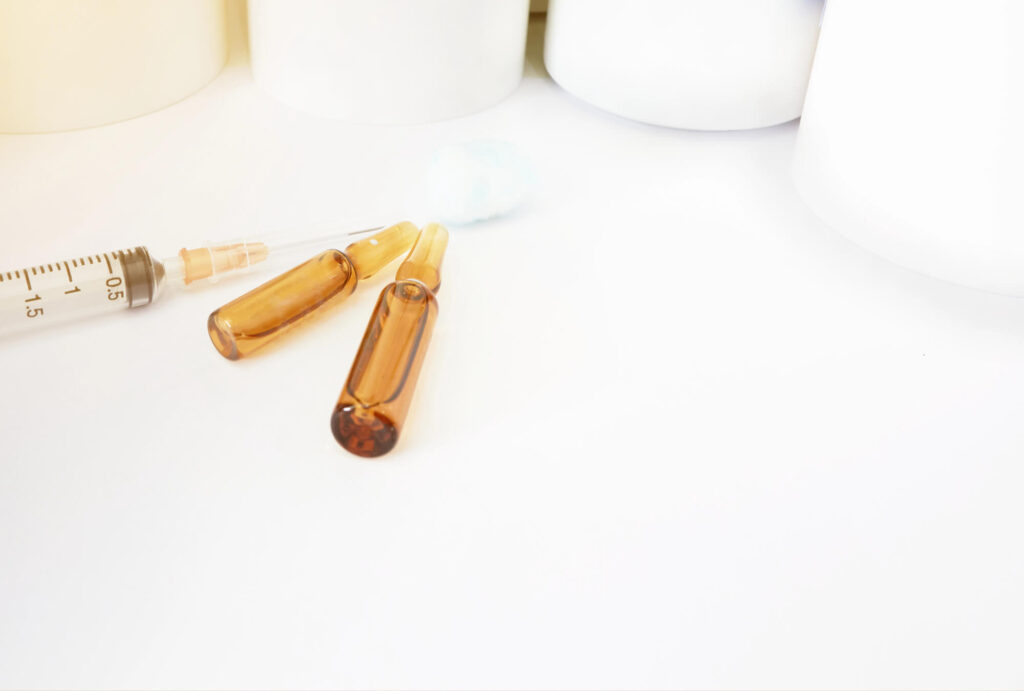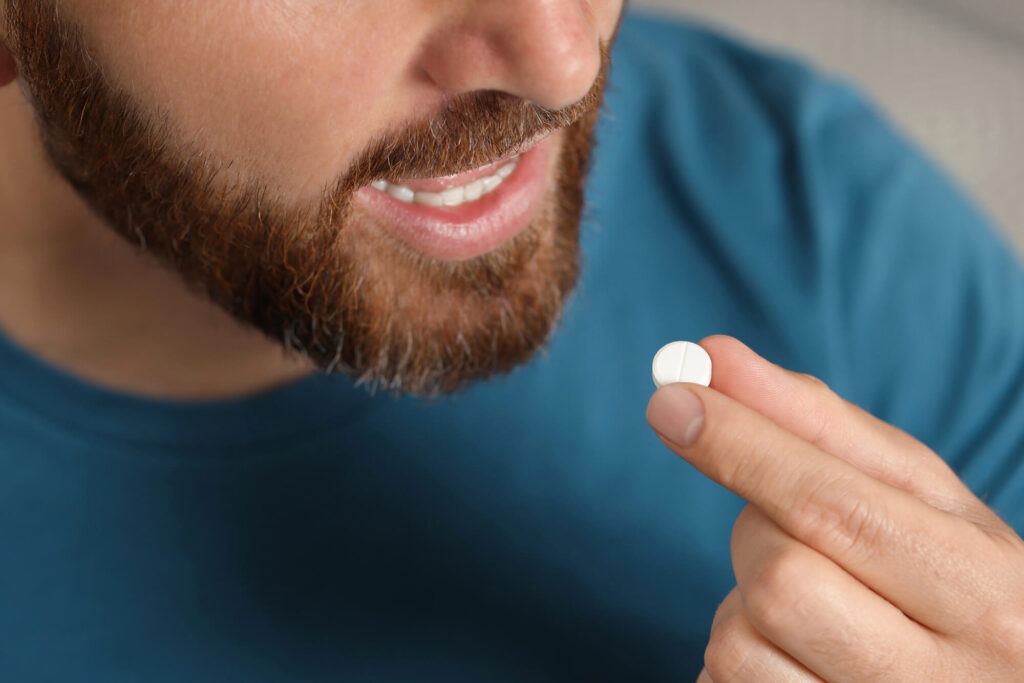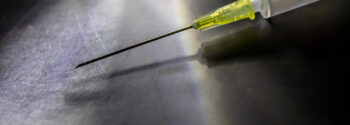
Erectile dysfunction (ED) affects millions of men worldwide, impacting their confidence, relationships, and overall quality of life. It is a condition characterized by the inability to achieve or maintain an erection sufficient for satisfactory sexual activity. Many treatment options are available, with ED injections proving to be an effective treatment for patients who have not responded well to PDE5 inhibitors such as Viagra or Cialis.
While intracavernous injection therapy provides immediate erectile response by increasing blood flow to the penis, it does not cure ED itself.
That’s where lifestyle changes and combination therapy come in. By addressing underlying factors such as vascular disease, testosterone deficiency, and cardiovascular health, patients can experience long-term improvements in sexual function. We’ll explore the benefits of TriMix injections and other ED treatments, along with lifestyle strategies that enhance their efficacy.
Understanding Intracavernous Pharmacotherapy (ICP)
Intracavernous Pharmacotherapy (ICP), commonly referred to as intracavernous injections or ED injections, offers a reliable solution for men who have not found success with oral medications. By directly stimulating blood flow to the penile tissue, these intracavernous injections can promptly induce an erection.
To fully appreciate their potential, it’s essential to understand how they work and how they can be effectively combined with lifestyle modifications for enhanced results.
What are ED Injections?
For patients who do not respond to first-line therapy, such as oral medications, ICP or penile injection therapy is a powerful alternative first-line therapy. Intracavernous injection therapy involves injecting medication directly into the smooth muscle cells of the penis to increase blood flow and facilitate an erection. Unlike PDE5 inhibitors, which require sexual stimulation to work, penile injections trigger an automatic erectile response within minutes.
TriMix: The Leading Intracavernous Pharmacotherapy
TriMix is a combination therapy consisting of Alprostadil, Phentolamine, and Papaverine, three active ingredients that work together to relax blood vessels and increase penile erection. Clinical studies have shown that TriMix has an efficacy rate of over 90%, making it one of the most effective treatment modalities available today. It is especially beneficial for patients with diabetes, cardiovascular disease, or veno-occlusive dysfunction, who may not respond well to PDE5 inhibitors like sildenafil citrate (Viagra). It has also been reported that issue of these injections helps with reducing incidences of premature ejaculation.
Other Intracavernous Pharmacotherapy (ICP) Injections
Beyond TriMix, Boston Medical Group offers other penile injections as part of intracavernous injection therapy:
- BiMix: A two-drug combination (Papaverine and Phentolamine) that is effective for milder cases of ED.
- QuadMix: A four-drug compound that offers a stronger erectile response for patients with erectile dysfunction resistant to standard treatments.
- Papaverine injections: Work by relaxing blood vessels and improving effects on erectile function. Boston Medical Group provides personalized ICP injections tailored to patient needs. (Read more)
Key Advantages of ICP
Intracavernous pharmacotherapy (ICP) offers numerous benefits for men experiencing erectile dysfunction:
- Reliable Results: The erections achieved through ICP are dependable and consistent, unaffected by food, alcohol, or other medications.
- Pain-Free Application: An auto-applicator facilitates a painless injection process with little to no adverse effects.
- High Success Rate: ICP boasts an impressive success rate of 98%, providing effective results regardless of the patient’s age or existing health issues.
- Minimal Restrictions: While generally safe, ICP is not recommended for individuals with a penile prosthesis or specific blood disorders such as leukemia or lymphoma.
- Localized Treatment: Targeting the problem area directly, ICP minimizes systemic side effects and does not interfere with other ongoing treatments.
- Potential for Long-Term Benefits: By enhancing blood flow and improving tissue elasticity, ICP can lead to better erectile function over time. Some patients find they require less frequent use or no longer need ICP at all.
- Additional Perks: Many users experience improved control over ejaculation as a beneficial side effect.
Other Options in Treatment of Erectile Dysfunction
When addressing erectile dysfunction, it’s important to recognize that the options for treatment of erectile dysfunction extend beyond injections. A holistic approach that combines various treatment modalities can often yield the best results for ED and other types of sexual dysfunction.
This section explores additional therapies that, alongside intracavernous injections, can be integral to managing erectile dysfunction effectively.
Oral Medications
Oral medication for ED refers most of the time to PDE5 inhibitors, which remain the first-line treatment for ED and include:
- Sildenafil (Viagra)
- Tadalafil (Cialis)
- Vardenafil (Levitra)
Their primary mechanism of action involves the inhibition of the enzyme phosphodiesterase type 5 (PDE-5), which is found in the smooth muscle cells of the penis.
When sexual stimulation occurs, the central nervous system triggers the release of nitric oxide (NO) in the penile nerves and vascular endothelium. NO then diffuses across these tissues and initiates a cascade of biochemical events. This cascade blocks intracellular calcium, resulting in the relaxation of vascular smooth muscle.
Consequently, penile blood flow increases, facilitating an erection. PDE-5 inhibitors enhance this process by preventing the breakdown of cyclic guanosine monophosphate (cGMP), a molecule that promotes smooth muscle relaxation and blood vessel dilation. By blocking PDE5, these medications sustain higher levels of cGMP, thus supporting prolonged blood flow into the penis and aiding in the achievement and maintenance of an erection.
In shorter words, this type of medical treatment increases blood flow by inhibiting enzymes that restrict penile erection. Some common side effects include nasal congestion, headaches, and flushing, and they may be less effective for patients with hypogonadism, vascular disease, or diabetes, which might require the use of either ICP or alternative treatments like shockwave therapy and vacuum erectile devices.
Additional and Alternative Therapies for ED
- Vacuum erection devices (VEDs): These are non-invasive treatments that consist of vacuum devices that create suction, increasing blood flow to the penis. These vacuum erection devices are meant as quick solutions to ED, providing enough blood flow to the penis to create an erection suitable for vaginal penetration, but will not have the long-lasting effects of ICP or oral medication needed for complete sexual intercourse.
- Penile Implant Surgery (Inflatable Implants): Penile implants are what they sound like; A surgical approach involving penile prostheses that provide a permanent solution for those with severe ED that might be a consequence of physical injury and trauma, like spinal cord injuries.
- Shockwave Therapy (Low-intensity extracorporeal shockwave therapy): Low-intensity shockwave therapy is done with devices that stimulate smooth muscle cells and regenerate blood vessels.
- Hormone Therapy (Testosterone Replacement Therapy): Helps men with testosterone deficiency improve their sexual performance and achieve natural erections.
- Stem Cell Therapy: A regenerative treatment under clinical trials designed to repair vascular disease and enhance erectile function. Stem cell therapy is seen mostly as a treatment option for patients with ED who have not responded to PDE-5 inhibitors or other forms of treatment of erectile dysfunction.
All of these options in treatment for erectile dysfunction will always be applied after extensive mental and physical exams from your healthcare provider. They take into account both medical conditions and your lifestyle to determine the most effective treatment option to keep an erection firm and long-lasting.
How Lifestyle Changes Enhance ED Injection Results
While injectable medication provides an immediate erectile response, long-term improvements in sexual dysfunction require addressing underlying health conditions and risk factors for ED. Systematic reviews of combination therapy, including the use of penile injection therapy and lifestyle modifications together, have shown this mix improves clinical efficacy and reduces the risk of complications.
The Science Behind Lifestyle Modifications
This systematic review and meta-analysis of ED treatments shows that lifestyle factors such as physical activity, dietary changes, and even behavioral therapy significantly enhance treatment outcomes. Cardiovascular events, diabetes, psychological factors, and obesity are major contributors to ED, making it essential to adopt healthier habits and therapeutic approaches for sustained results.
Key Lifestyle Changes to Improve ED Treatment Outcomes
When it comes to improving erectile dysfunction (ED) outcomes, combining medical treatments with lifestyle changes can be highly effective for achieving natural and prolonged erections.
If you enhance overall health through strategic modifications in daily habits, men with ED can not only boost the effectiveness of their intracavernous injection treatment but also promote long-term sexual health and well-being.
Maintain a Healthy Diet
A heart-healthy diet can improve blood flow and enhance the efficacy of PDE5 inhibitors and penile injections. Increase your intake of antioxidants, nitric oxide, and omega-3 fatty acids while avoiding processed foods and excessive sugar. Focus on having a diet rich in leafy greens and lean proteins like salmon, nuts, and berries.
Exercise Regularly
Engaging in physical activity such as running or swimming improves cardiovascular health and blood pressure, which directly impacts erectile function. Resistance training can also boost testosterone levels, while pelvic floor exercises help strengthen the muscles directly involved in erections.
Improve Sleep Habits
Lack of sleep reduces testosterone levels and increases stress hormones, which can impair sexual function. Aim for at least 7–9 hours of sleep per night.
Anxiety and Stress Management
Chronic stress and anxiety are significant risk factors for erectile dysfunction (ED) as they lead to hormonal imbalances and reduced blood flow, negatively impacting erectile function. The body’s response to stress can elevate cortisol levels, affecting testosterone production and resulting in several sexual dysfunctions, which can include ED and premature ejaculation. Treating these psychological issues is crucial for effective ED management.
Behavioral therapy, particularly Cognitive Behavioral Therapy (CBT), is effective in addressing sexual performance anxiety and related psychological concerns. By restructuring negative thought patterns and promoting positive mental health, CBT can significantly improve sexual function.
Additionally, incorporating stress-reduction techniques such as meditation, yoga, and deep breathing exercises into daily routines can help lower stress levels and improve relaxation. These practices enhance overall emotional well-being and heighten sexual stimulation by promoting a relaxed state of mind conducive to improved sexual performance.
Reduce Alcohol Intake and Avoid Smoking
Excessive alcohol consumption disrupts testosterone production, while smoking damages blood vessels, leading to cardiovascular diseases and veno-occlusive dysfunction in the erectile tissues; in other words, it lowers blood flow to the penis and results in erectile dysfunction. Reducing both of these modifiable risk factors can, therefore, significantly enhance clinical efficacy, along with reducing other risk factors like heart disease, stress, and poor sleep.
Monitor Medications and Underlying Health Conditions
Certain antihypertensive medications and antidepressants may contribute to ED. Patients should work with their doctor to assess potential adverse events and adjust their erectile dysfunction therapy plans accordingly. Here are some important steps to consider:
- Review Medication List: Regularly review your current medications with healthcare providers to determine if any drugs may be contributing to ED. Adjustments or alternatives may be recommended.
- Manage Underlying Health Conditions: Treat underlying conditions such as diabetes, heart disease, hypertension, prostatic hyperplasia, or hormonal imbalances, as they can significantly impact erectile function. Proper management of these conditions can aid in improving overall vascular health and its effects on sexual health.
- Frequent Health Check-ups: Regular medical examinations can help in the early detection and management of potential health issues that might contribute to ED. Monitoring key health markers can lead to proactive measures that enhance treatment outcomes.
Avoid Environmental Toxins
Exposure to BPA, pesticides, and chemicals can disrupt testosterone levels and contribute to erectile dysfunction. Opting for BPA-free products and organic foods can help mitigate these effects.
Work closely with a healthcare professional to develop a holistic plan that includes both medication management and lifestyle modifications to optimize erectile function. This collaborative approach can yield the best long-term results.
The Best Approach: Combination Therapy
Studies, systematic reviews, and clinical trials on the outcomes of combination therapy all highlight that medications provide immediate results, but long-term success comes from integrating behavioral therapy, medical treatment, and lifestyle changes.
Men who incorporate TriMix injections as part of a broader routine that includes a balanced diet and regular physical activity often experience enhanced erectile capabilities, higher patient satisfaction, and improved patient preference for treatments. Few or no serious adverse events were shown in any of the clinical trials or studies of combination therapy.
The Role of Psychological Support
Addressing erectile dysfunction or any other problems with sexual activity isn’t solely about treating physical symptoms through medical therapy; psychological health plays a crucial role, too. Engaging with a specialist at institutions like the Boston Medical Group can provide comprehensive treatment options.
These professionals not only target the physical manifestations of ED but also delve into the mental and emotional factors that might be contributing. This dual focus ensures a well-rounded approach, promoting both mental well-being and physical vitality. Reclaim your confidence and vitality by embarking on a personalized journey toward better health and sexual satisfaction.
Empowering Your Journey to Better Sexual Health
Combining penile injections with lifestyle changes offers a more promising path to addressing erectile dysfunction through a personalized treatment protocol. Recognizing the uniqueness of each individual’s journey, Boston Medical Group presents a therapy for erectile dysfunction that combines the latest medical advancements, like PDE5 inhibitors and ICP injections, with proven lifestyle adjustments.
This combination treatment option aims for holistic recovery and long-lasting satisfaction, catering to each man’s specific needs and circumstances. By partnering with our dedicated team of healthcare providers, patients with erectile dysfunction are investing in their sexual health and overall well-being. Whether you’re seeking immediate relief with medical treatment or pursuing sustainable improvements through lifestyle modifications, Boston Medical Group is here to support you.
Let our specialists create a customized plan for you, combining medical solutions and alternative first-line therapies with proven lifestyle strategies for an empowered and satisfying approach to managing erectile dysfunction.
Maximize the results of any treatment of erectile dysfunction—schedule a consultation with Boston Medical Group today.




